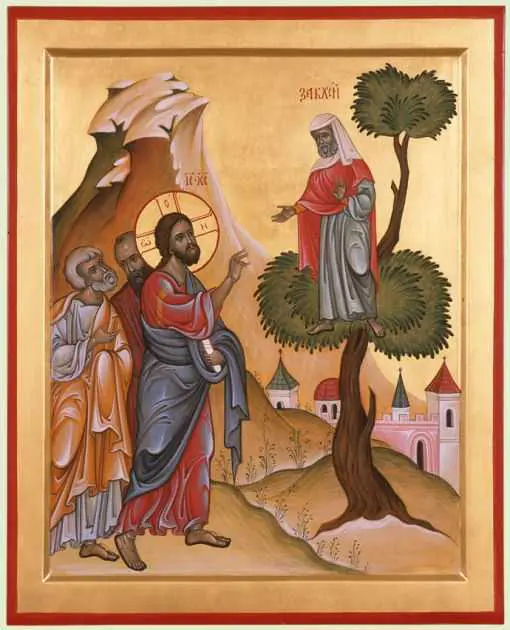By St. John Chrysostom
“Why are you proud of your fatherland,” He says, when I command you to be a wanderer throughout the entire universe, when you can become such that the whole world will not be worthy of you? Where you come from is so unimportant that the pagan philosophers themselves do not attach any importance to it, call it external and give it last place. However, Paul allows this, you will say, when he says: “concerning election, beloved of God for the sake of the fathers” (Rom. 11:28). But tell me, when, about whom and to whom does he say this? Converted pagans, who were proud of their faith, rebelled against the Jews, and thereby alienated them even more from themselves. So, he says this in order to bring down arrogance in some, and to attract and excite others to similar jealousy. When he talks about those noble and great men, then listen to what he says: “for those who speak like this show that they are looking for the fatherland. And if they had in their thoughts the fatherland from which they came, they would have time to return; but they sought what was better, that is, what was heavenly” (Heb. 11:14-16). And again: “all these died in faith, not receiving the promises, but only saw them from afar and rejoiced” (Heb. 11:13). In exactly the same way, John said to those who came to him: “Do not think to say to yourself, ‘We have Abraham as our father’” (Matthew 3:9); also Paul: “Not all those Israelites who are of Israel, not children of the flesh, are children of God” (Rom. 9:6,8). In fact, tell me, what benefit did the children of Samuel have in the nobility of their father, when they themselves did not inherit his virtue? What good is it for the children of Moses who were not jealous of his strict life? They did not inherit his power. They were written by his children, but the government of the people passed to another who was his son in virtue. On the contrary, did it hurt Timothy that he had a Gentile father? What benefit again did the son of Noah have from the virtue of his father if he became a slave from a free man? Do you see how little protection children have in the nobility of their father? The corruption of the will overcame the laws of nature, and deprived Ham not only of the nobility of his parents, but also of freedom itself. Also, was not Esau the son of Isaac, who also interceded for him? Although his father tried and wanted him to be a participant in the blessing, and he himself fulfilled all his commands for this purpose, but since he was thin, all this did not help him. Despite the fact that by nature he was the first-born, and his father, together with him, tried in every possible way to preserve his advantage, he, however, lost everything, because he did not have God with him. But what am I saying about individuals? The Jews were sons of God, and yet they gained nothing from this dignity. So, if someone, even being a son of God, is punished even more for not showing virtue worthy of such nobility, then what about showing off the nobility of his grandfathers and great-grandfathers? And not only in the Old Testament, but also in the New Testament one can find the same thing. “And to those who,” it is said, “received Him, to those who believed in His name, He gave power to become children of God” (John 1:12); meanwhile, for many of these children, according to Paul, it is completely useless that they have such a Father. “If you are circumcised,” he says, “Christ will profit you nothing” (Galatians 5:2).
If Christ is completely useless for those who do not want to listen to themselves, then what is the use of human intercession? So, let us not be proud of either nobility or wealth, but let us despise those who are puffed up with such advantages; Let us not be discouraged because of poverty, but let us seek the wealth that lies in good deeds and flee the poverty that leads us into sin. For this last reason, the famous rich man was indeed poor, which is why he could not, despite intense requests, receive even one drop of water. Meanwhile, is there such a beggar among us who would not have water to cool himself? There is none; and those who are melting away from extreme hunger may have a drop of water, and not only a drop of water, but another, much greater consolation. But this rich man didn’t even have that – he was so poor, and, what’s most painful of all, he couldn’t have any consolation in his poverty from anywhere. So why do we covet money when it does not take us to heaven? Tell me, if any earthly king said that a rich man could not shine in his royal palaces, or achieve any honor, would not everyone throw away their possessions with contempt? So, if we are ready to despise property when it deprives us of honor from the king of the earth, then with the voice of the King of heaven, who daily cries out and says that it is inconvenient to enter those sacred vestibules with wealth, shall we not despise everything and reject wealth? to freely enter His kingdom?
Source: St. John Chrysostom, Interpretation of the Gospel of Matthew. Vol. 7. Book 1. Conversation 9.






